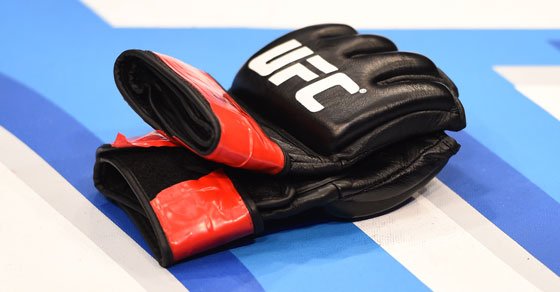Top Noi Kiwram has a unique method of preparing for fights that most doctors likely wouldn’t recommend.
On the other hand, there’s no arguing with results as the muay Thai standout was victorious in his opening round bout of the Road to UFC flyweight tournament this past June. Kiwram won a unanimous decision over Yuma Horiuchi to advance to the semifinals and move one step closer to becoming the first male fighter from Thailand to compete inside the octagon (Loma Lookboonmee became the first Thai UFC fighter when she debuted with the promotion in 2019).
But Kiwram’s entertaining standup style wasn’t the only part of his act that made headlines. The 30-year-old was open about the pre-fight ritual that he has carried throughout his combat sports career, one that is — to put it lightly — questionable from a health standpoint.
“Before I go to train, I smoked every day,” Kiwram said in an interview with MMA Fighting’s José Youngs.
“Before fights I smoke cigarettes,” he added. “When I fight, in the morning, yes, I smoke cigarettes. In the morning I eat things, when you’re full you want to smoke a cigarette. Sleeping, wake up, smoke a cigarette. Go to fight.”
Should Kiwram emerge as the winner of the Road to UFC flyweight bracket and earn a contract, he’s not sure if he’ll be allowed to continue smoking before fights, though he said he’s already thinking of transitioning to snus, a tobacco product typically applied to the upper lip and gums
Then again, one can believe that Kiwram is willing to change his bad habits given that he’s still developing as an MMA fighter after fighting in muay Thai since he was 11 years old. And it’s not just the training, the culture of MMA is a completely different world from the one he’s known for decades.
“When you’re in muay Thai camps in Thailand, there’s a big boss, which is the gym owner, it’s so different from MMA,” Kiwram’s coach and translator Frank Hickman explained. “He’s done a really good job of understanding and changing and stuff, but the money goes directly to the boss and then they don’t even know how much money they make — they do when they fight at a high level like when he was fighting in Bangkok — but at all times they don’t have a life. Their life is fighting. They stay at the gym, they eat at the gym, the big boss takes 50 percent because they feed them, they house them, they do everything, they pay for everything.
“These guys, when they come to MMA, they don’t know anything. Like, my wife is Thai so she has to help them a lot with opening a bank account, stuff like that. They don’t have any life skills because in Thailand they’re literally like race horses. They’re owned by the gym. They can’t just leave their gym and go somewhere else.”
As for why Kiwram chose to transition to MMA, the decision was somewhat of a happy accident. His primary goal when he first showed interest in another combat sport was to enhance his capabilities as a trainer, but he found success himself and has already competed for notable promotions such as RIZIN, UAE Warriors, and Full Metal Dojo.
“I want to try something [new],” Kiwram said. “I know muay Thai. I want to know something else.”
“He wanted to learn a little bit about MMA because it could help him become a better Thai trainer for MMA fighters that came into the gym,” Hickman added. “But he never left.”
Kiwram said that there were times he was fighting in muay Thai for around $100 USD a night, so the thought of ever signing a deal with the UFC was remote. He’s now two wins away from that goal, with a semifinal bout against South Korea’s undefeated Park HyunSung up next (a date for the next round of the Road to UFC tournament fights is still to be announced).
There could be a lot of changes ahead for Kiwram, who never thought he’d be so close to fighting in the UFC so soon.
“I don’t think about this,” Kiwram said. “When I stayed in Thailand, I don’t know my future. It’s not easy for you to go to the UFC. Before, I don’t speak English. People in Thailand never speak English. My future looks crazy for me. This is my dream.”



